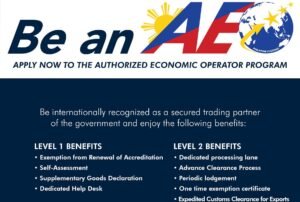Small and Medium Enterprises (SMEs) play a crucial role in the Philippine economy, contributing significantly to employment generation, innovation, and economic growth. However, one of the key challenges faced by SMEs, particularly those engaged in export activities, is access to financing. In this blog post, we’ll explore various export financing options available to SMEs in the Philippines to support their international trade endeavors.
1. Traditional Bank Financing:
Traditional bank financing remains a common option for SMEs seeking export financing. Banks offer a range of products tailored to exporters’ needs, including export working capital loans, export credit lines, and export packing credit. These financing options provide SMEs with the necessary funds to cover production costs, inventory management, and other expenses related to export activities. Additionally, banks may offer trade finance solutions such as letters of credit and documentary collections to facilitate international transactions and mitigate payment risks.
2. Export Development Council (EDC) Programs:
The Export Development Council (EDC) of the Philippines offers various programs and initiatives to support exporters, including SMEs. One such program is the Export Assistance Program (EAP), which provides financial assistance to exporters for participation in trade fairs, market development activities, and export promotion initiatives. SMEs can also benefit from capacity-building programs, market intelligence services, and export consultancy services offered by the EDC to enhance their export competitiveness and access to financing.
Subscribe to the MyCCBI365 newsletter
3. Government-backed Financing Programs:
The Philippine government, through agencies such as the Department of Trade and Industry (DTI) and the Small Business Corporation (SB Corp), offers financing programs specifically designed to support SMEs engaged in export activities. For example, the SB Corp’s Pondo sa Pagbabago at Pag-asenso (P3) program provides low-interest loans to micro, small, and medium enterprises, including exporters, to support their business expansion and export growth initiatives. Additionally, the DTI’s SME Roving Academy (SMERA) offers training programs and workshops on export financing and trade facilitation to empower SMEs with knowledge and skills in accessing export financing options.
4. Export Credit Insurance:
Export credit insurance provides SME exporters with protection against non-payment risks arising from commercial and political factors. The Philippine Export-Import Credit Agency (PHILEXIM) offers export credit insurance products to SME exporters, covering risks such as buyer default, insolvency, and political unrest. By mitigating payment risks, export credit insurance enables SMEs to secure financing from banks and other financial institutions more easily and expand their export activities with confidence.
5. Alternative Financing Solutions:
In addition to traditional financing options, SME exporters can explore alternative financing solutions to meet their funding needs. Crowdfunding platforms, peer-to-peer lending, and supply chain financing arrangements are some examples of alternative financing mechanisms that SMEs can leverage to access capital for export activities. These innovative financing solutions offer flexibility, speed, and accessibility, making them attractive options for SMEs seeking financing outside the traditional banking system.
Conclusion:
Access to financing is crucial for the growth and sustainability of SMEs engaged in export activities in the Philippines. By exploring a diverse range of financing options, including traditional bank financing, government-backed programs, export credit insurance, and alternative financing solutions, SME exporters can overcome funding challenges and seize opportunities for international expansion and market diversification. With the right financing support, SMEs can unlock their full export potential, contribute to economic development, and compete effectively in the global marketplace.
Prof. Rod Villanueva, eMba, Lcb
Entrepreneur








